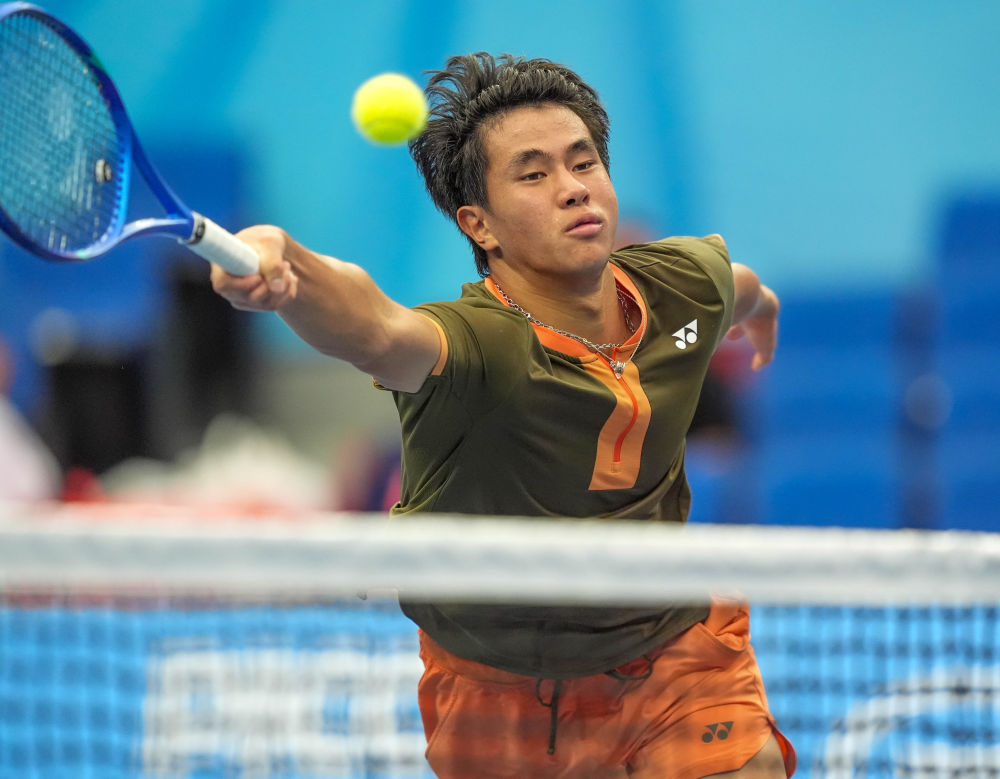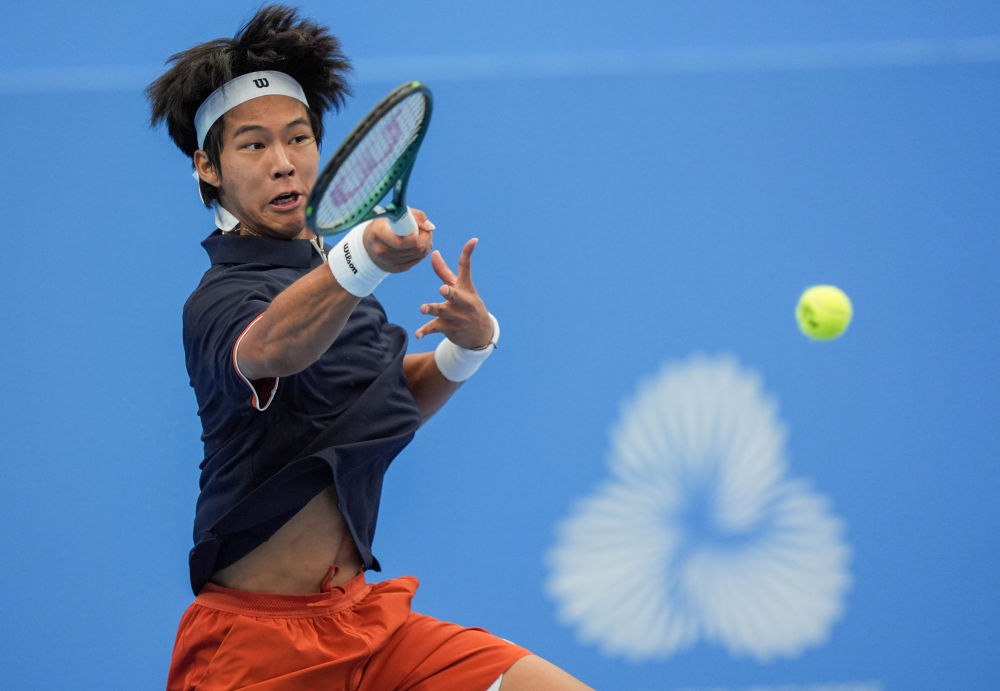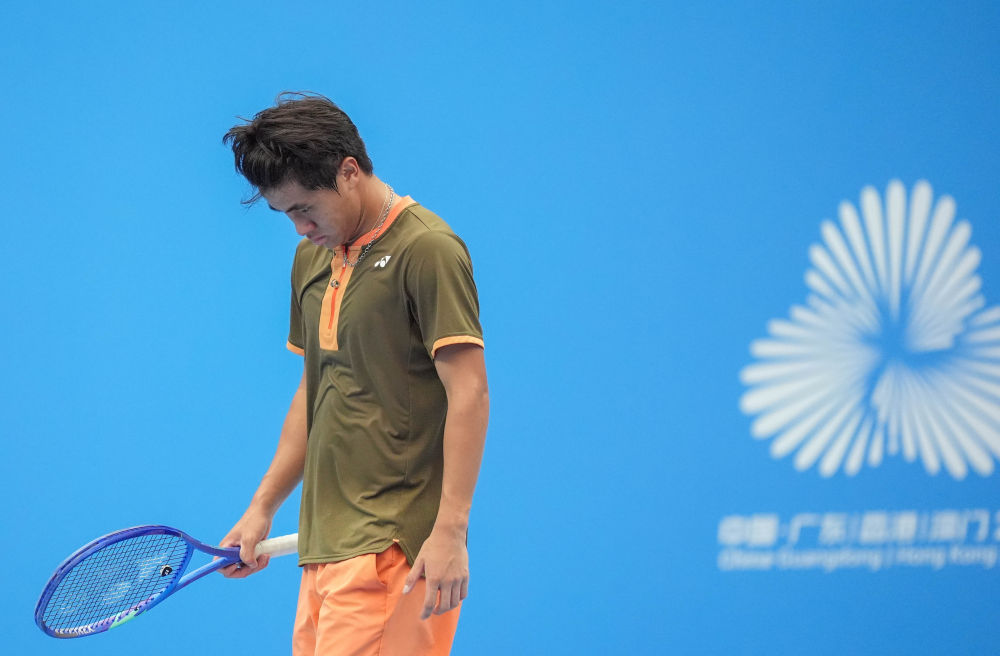
ZHUHAI, China - After taking the opening set from China's rising tennis player Zhou Yi, Chen Ye could feel the match slipping away. His right forearm was tightly bandaged, and his legs began to cramp.
Then, in a single gesture, the 18-year-old from Central China's Hubei province peeled off the bandage, turned back to the court and kept playing.
The quiet arena broke into loud applause.
This scene unfolded in the men's junior team quarterfinal at the Chinese National Games on Monday, the country's most prestigious multisport event.
"I was wondering why he didn't retire in the third set," Zhou, representing the Guangxi Zhuang autonomous region, said.
But Chen had no thoughts of giving up.
"I never thought about retiring. This match was too important for me," Chen said. "I wanted to fight to the end, to earn the possibility into the semifinals for my team and also to show my respect to my opponent."
Zhou, 20, is ranked No 253 in the world and is among China's most promising young players. Chen, who has only just entered the professional circuit, has four recorded matches and two ATP points, ranking No 1,672.
On paper, the gap was wide. From the first point, however, the underdog played with calm and determination.
In the first set, Chen extended rallies from the baseline and handled Zhou's serves with patience. Despite Zhou's five aces, Chen's defense and backhand precision kept him level and he won a tiebreak 7-6 (4).

"He played perfectly," Zhou said. "I wasn't at my best, but honestly, he made me unsure of what to do."
The second set began evenly, but at 2-2 Chen started to struggle with his right arm. During a changeover, medical staff wrapped his forearm. Back on court, his movement was restricted.
Minutes later, Chen walked to the sideline again and removed the bandage, continuing bare-armed.
It evoked memories of fellow Hubei player Zheng Qinwen, who won gold at Paris 2024 and removed a thigh bandage mid-match against then-world No 1 Iga Swiatek at the 2022 French Open.
Though Chen hadn't heard that story, he made the same choice.
"I didn't care about the injury anymore," Chen said. "I just wanted to do my best, and the bandage was limiting my swing."
As the match wore on, cramps set in and his serve speed fell from over 180 kph to just above 110. He limped between points, sometimes leaning on his racket to catch his breath, but refused to stop.
"He should have retired. He already showed great fighting spirit," said Yang Xiaoyi, a spectator from Jiangmen City.
Chen battled to the end, losing 7-6 (4), 3-6, 0-6.

In the mixed zone, the 1.8-meter-tall teenager covered his face in tears. "I played pretty well," he said. "It's just my body didn't hold up. Congratulations to Guangxi."
Later in the evening, after physiotherapy, Chen returned to practice. "I'm now in good physical condition. I was just too stressed, and my muscles severely cramped during the match."
With a calmer tone, he reviewed the day. "I have no regrets, I did my best today," he said. "Before this, I was a bit nervous playing higher-ranked players. But now I feel maybe we're not that different. They're just more experienced. That shows me how I can improve."
In the coming days, Chen will play singles and doubles, aiming to build on his breakthrough.
"I have a long way to go," he said. "By 2026, my goal is to reach the world's top 500."


